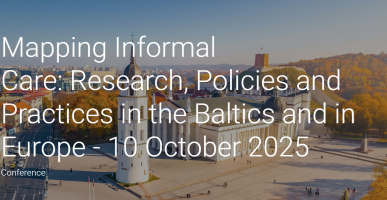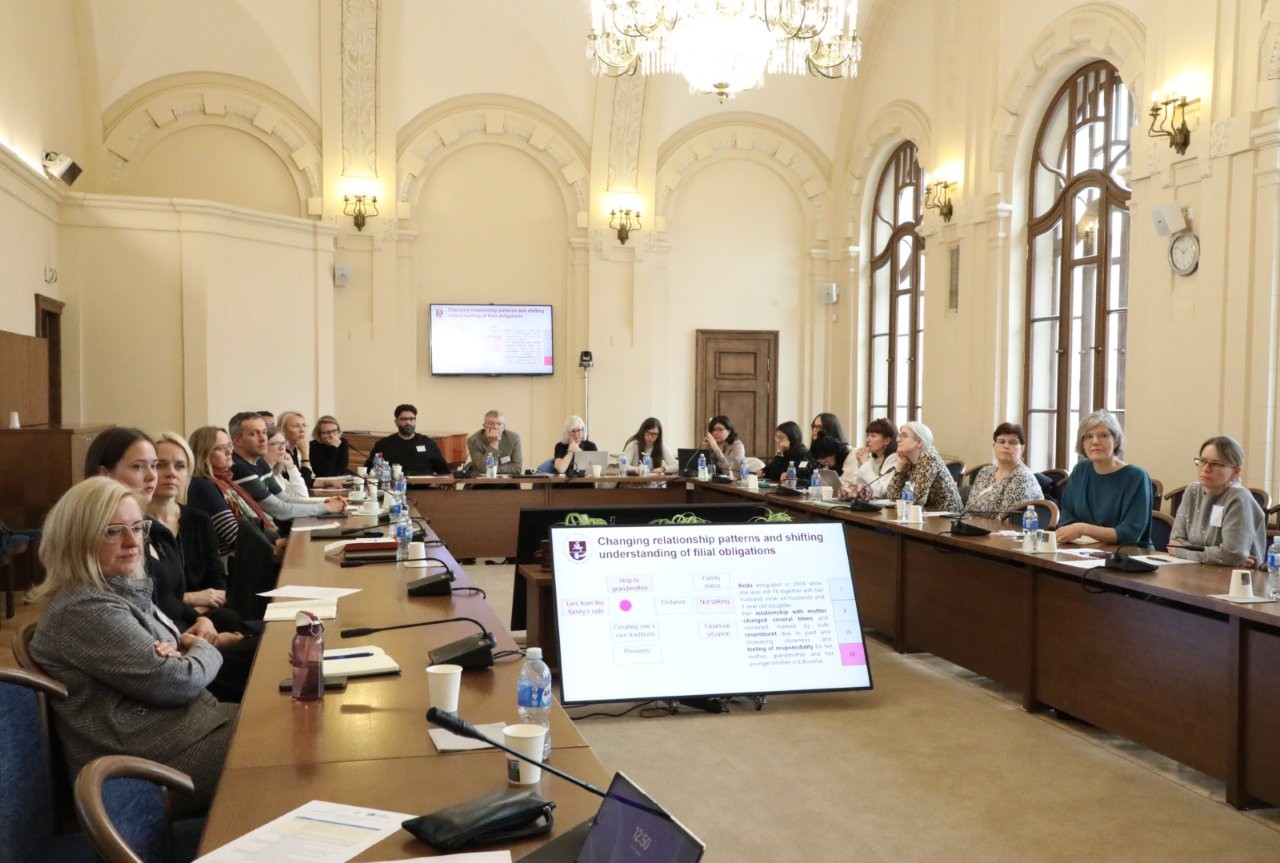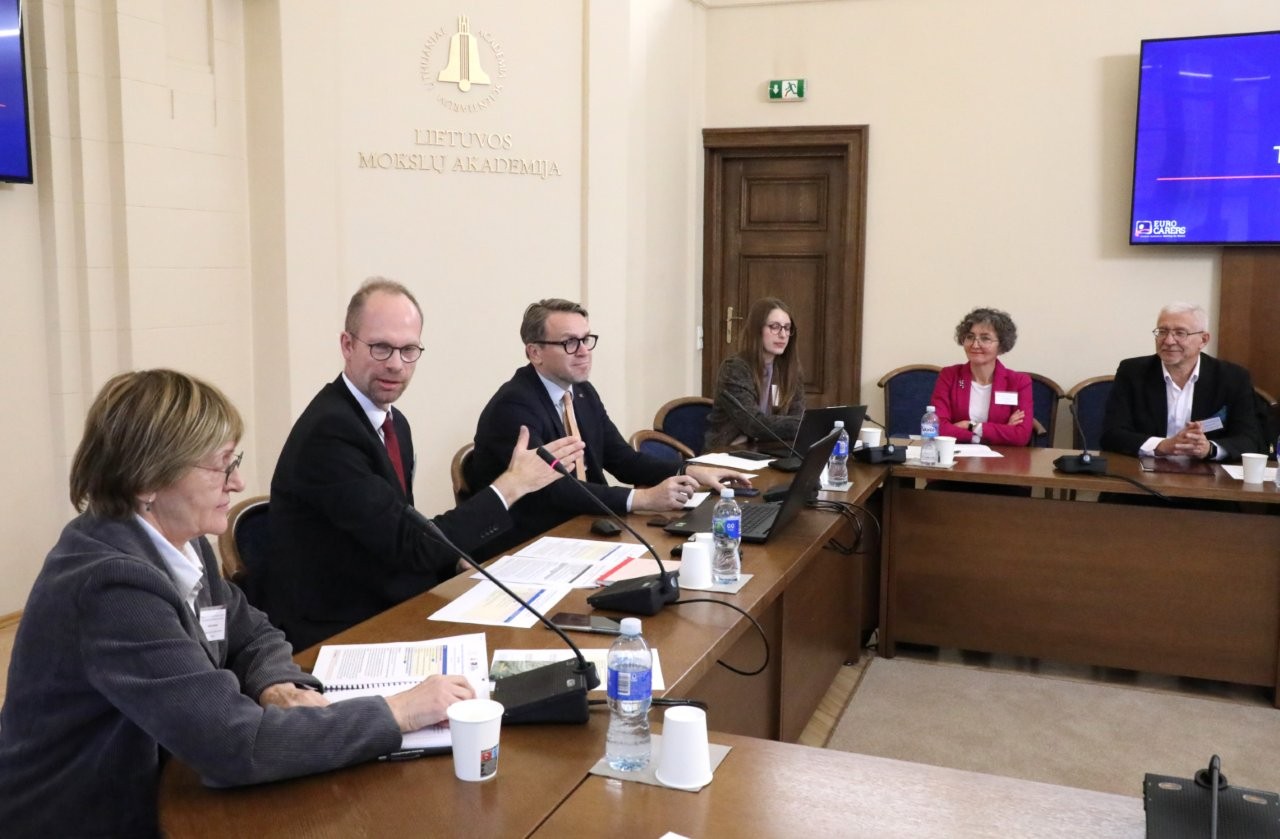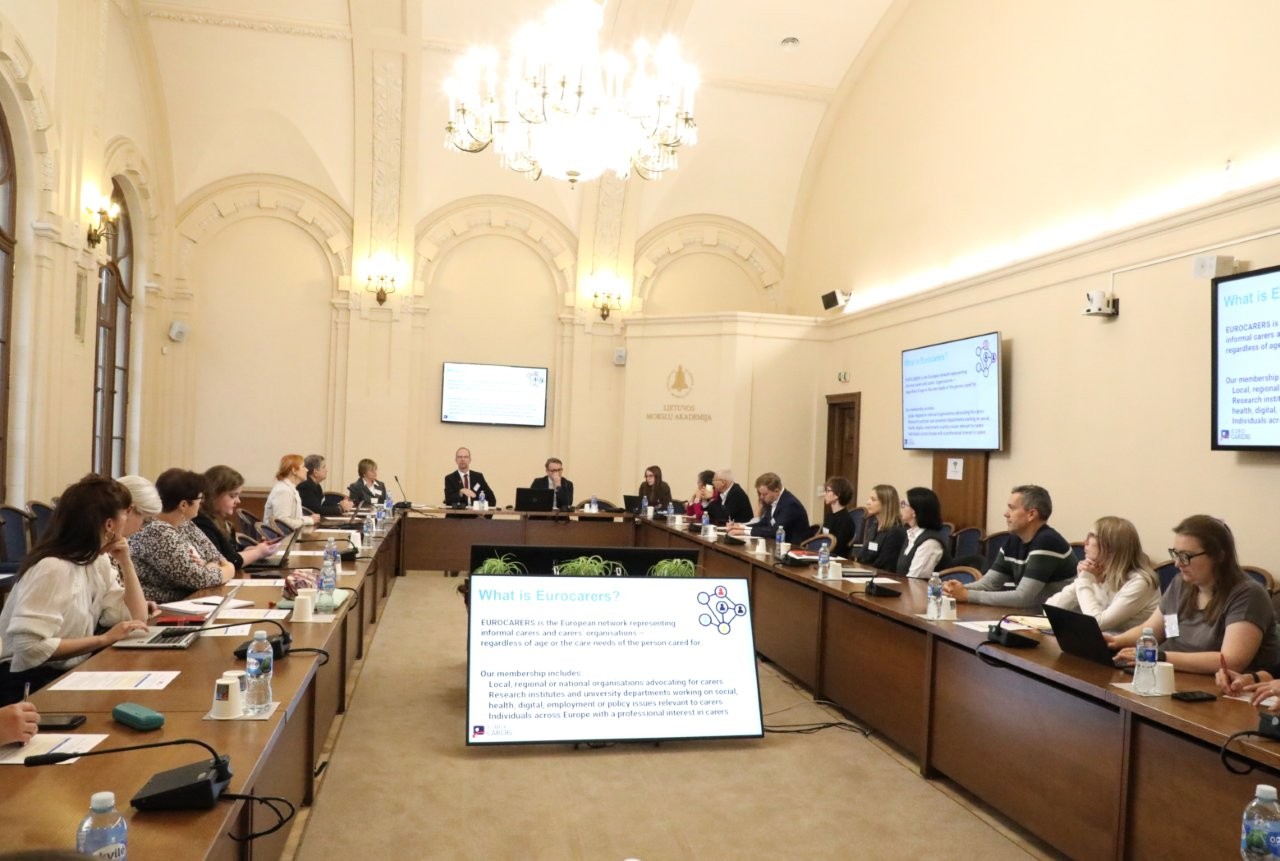Events
International conference ‘Mapping Informal Care: Research, Policies and Practices in the Baltics and in Europe’
15 10 2025
On 10 October 2025, Eurocarers, the European association of carers, together with the Lithuanian Centre for Social Sciences (LCSS) and the Lithuanian Academy of Sciences, organised the international conference ‘Mapping Informal Care: Research, Policies and Practices in the Baltics and in Europe’. The event was held at the Lithuanian Academy of Sciences in Vilnius.
The conference marked an important step in strengthening Eurocarers’ collaboration with researchers and carers’ organisations from the Baltic region, which are currently not represented within the Eurocarers network. The aim of the conference was to facilitate the exchange of knowledge between European researchers working in the field of informal care, carer movements in the Baltic countries, and relevant EU institutions.

Opening remarks were delivered by Marius Vaščega, head of the European Commission Representation in Lithuania, Prof. Aušra Maslauskaitė, a full member of the Lithuanian Academy of Sciences, and Prof. Boguslavas Gruževskis, director of the LCSS. The event was co-chaired by Prof. Laimutė Žalimienė (chief researcher, LCSS Institute of Sociology) and Prof. Andreas Hoff (vice-chair for research at Eurocarers and Zittau/Görlitz University).

During the conference, the latest research findings revealing the situation of informal carers in the Baltic States were presented to an international community of researchers and practitioners from more than 20 European countries.
During the plenary session, Dr Jolanta Reingardė and Vytautas Pečiukonis, representatives of the European Institute for Gender Equality, presented insights from the study ‘Survey of Gender Gaps in Unpaid Care, Individual and Social Activities (CARE)’, which explored gender differences in unpaid care and related activities.
Speakers included representatives of non-governmental organisations and experienced researchers from Lithuania, Latvia, and Estonia. In the session on informal care in Latvia, Jana Muižniece outlined the main challenges of informal care in the country. Liena Petersone and Daniela Macukane, representatives of the Social Integration State Agency, introduced a programme dedicated to developing the competencies of informal carers.

In the session on informal care in Lithuania, Dr Irma Mačkinė (Vilnius University) delivered a presentation on sibling relationships in the context of migration and informal care. Dr Dovilė Daugėlienė (Vytautas Magnus University) presented findings from a qualitative study exploring the experiences of individuals providing informal care to working-age relatives who acquired a disability during their life course. The session concluded with a presentation by Ieva Petkutė, a representative of the Dementia Lithuania association and the Lithuanian Sports University, who spoke about the subjective well-being of those caring for relatives with dementia.
The session on informal care in Estonia featured Dr Mare Ainsaar (University of Tartu), who discussed the particularities of well-being among men and women caring for children at home.
The final session focused on EU funding opportunities for researchers and practitioners working in the field of informal care. Gabrielė Čepeliauskaitė (Research Council of Lithuania, NCP for the European Research Council) and Sigita Auvertin Bagdonienė (Research Council of Lithuania, NCP for Horizon Europe) presented the Horizon Europe and European Research Council programmes.
Prepared by Dr Jolita Junevičienė, junior research fellow at the Employment and Social Welfare Research Department, Institute of Sociology, Lithuanian Centre for Social Sciences
Photography Virginija Valuckienė
PHOTO GALLERY